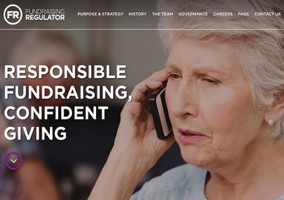The chief executive of Walking with the Wounded has told The Times that some military charities “sensationalise” the effects of post-traumatic stress disorder on returned veterans in order to raise more money from the public.
Ed Parker, chief executive of Walking with the Wounded, is quoted in an article in The Times today saying that military charities are exaggerating the problem of post-traumatic stress disorder (PTSD) in returned veterans in order to continue raising money from the public.
In The Times' piece, Parker said that the way PTSD is being used by military charities to raise funds has gotten “out of hand” and could be disguising the fact that many veterans are suffering from other issues, such as alcoholism and anxiety.
The chief executive of the charity, which runs expeditions with Prince Harry and supported over 600 veterans last year, said that military organisations know that the “PTSD label has become one that is very engaging… You are always going to slightly sensationalise how you fundraise.
"You do that with a Mars advert or buying a McDonald’s. You are always going to make it look better than it actually is, or more enticing.
"We have got to be more interesting than Combat Stress, which has got to be more interesting than Help for Heroes, because we are all fishing in the same pot."
A spokeswoman for Walking with the Wounded said that Parker’s comments were supported by the rest of the organisation. She also said that he made the comments because he wanted the whole military charity sector to be more “transparent and open” with the public.
Parker is himself a veteran and the brother of a retired general.
‘Never exaggerate to raise funds’ says IoF
Both the Institute of Fundraising and the Fundraising Regulator have issued statements in the wake of Parker’s comments.
Mike Smith, head of media and public affairs at the IoF, said: “Charity fundraisers play a vital role in highlighting issues, and asking the generous public to support these causes. They often raise awareness of issues the public would not otherwise know about.
“No one should ever exaggerate an issue in order to raise funds and at the same time charity fundraisers should not shy away from showing and explaining the cause they are asking the generous public to support.”
Gerald Oppenheim, interim head of policy and communications at the Fundraising Regulator, said that it had yet to receive a complaint from the public about the fundraising practices of any military charity.
“The Fundraising Regulator are aware of the report in today’s Times and elsewhere. While we will not be opening a general investigation, were we to receive complaints from the public suggesting undue pressure had been placed on them by a military charity or any other to raise funds for PTSD then we may investigate.”
The Charity Commission, Combat Stress and Help for Heroes have also been approached for comments.
Related Articles












